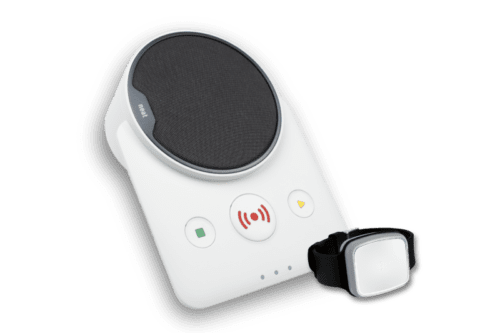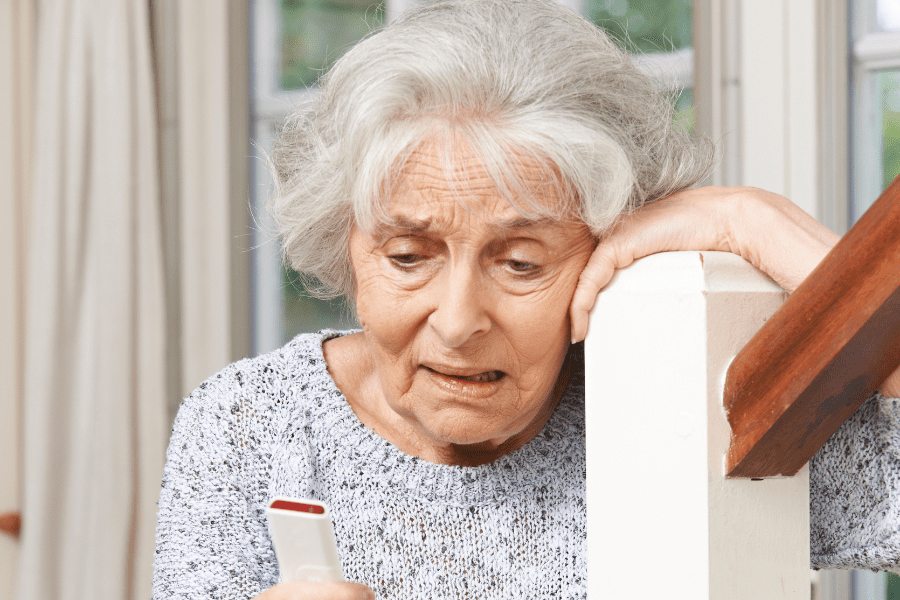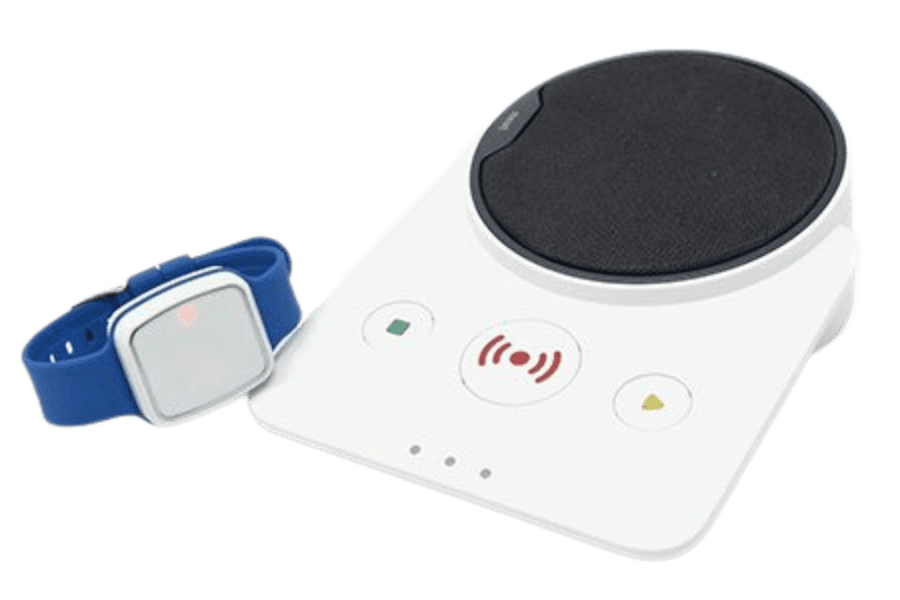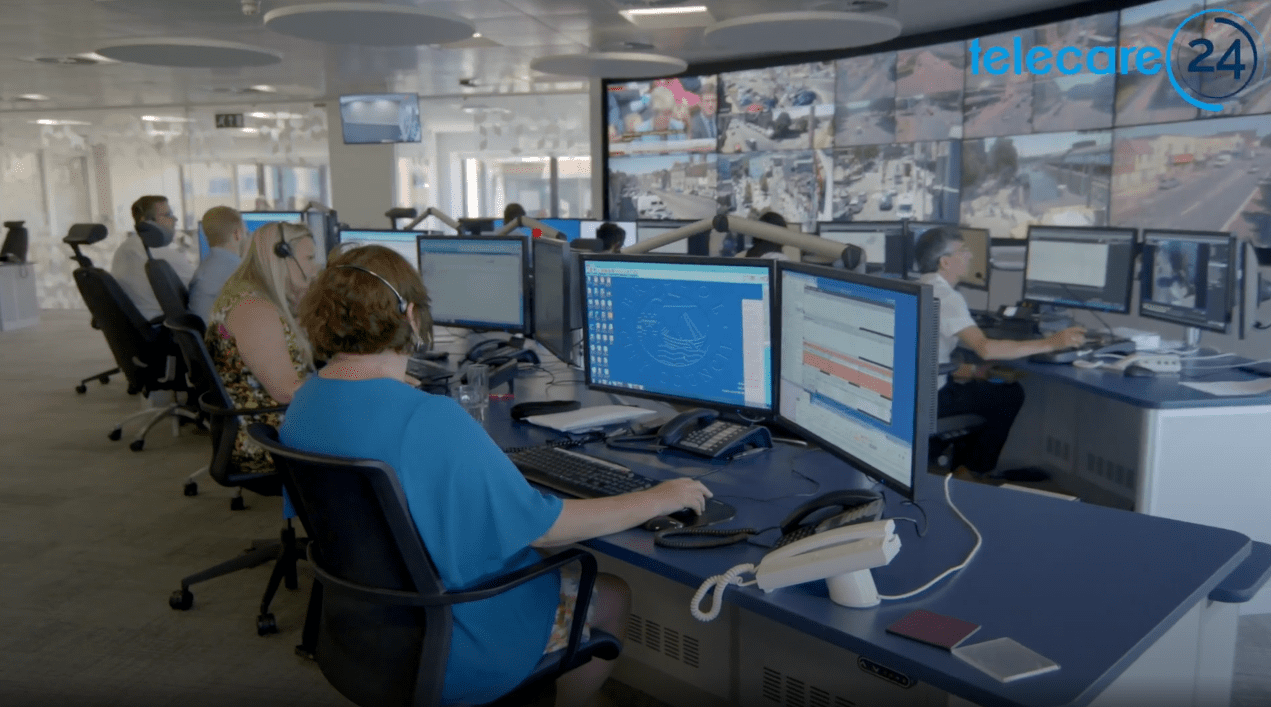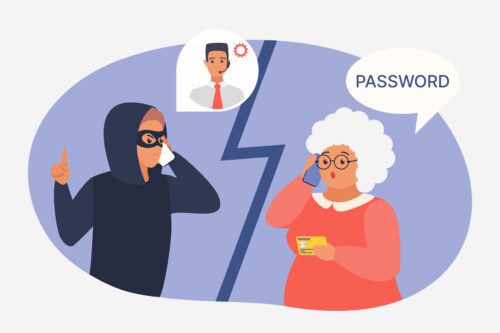The UK is in the process of transitioning from the traditional Public Switched Telephone Network (PSTN) to digital voice services, in a change known as the digital switchover. This switchover is expected to be completed by 2025. It will affect around 14 million homes and businesses, in the UK.
Although the change is expected to have significant benefits, such as improved call quality and reliability. It could also pose some challenges, especially for older people who may have personal alarms or telecare devices connected to their phone lines. This blog will explore the effects of the digital switchover on personal alarms and discuss how telecare service providers and users can prepare for the change.
Contents
Latest on the Digital Switchover
- BT has promised not to force the most vulnerable to switch over for at least a year – and that it will offer support to those who need it. Initially, it will target only those with full fibre broadband – expanding the rollout region by region from this summer.
- Those aged over 70 or who wear a health pendant will not be targeted until at least next year. Customers who do not use the internet, and those who have no mobile phone reception in their area, will also have a 12-month reprieve.
- During a power cut, if the landline is down, BT will connect customers who don’t use mobile phones nor the internet for free – only charging for the use of landlines and not for going online.
- Once households are transferred over, the vast majority of existing phones will become redundant. BT says it will provide a free handset to households affected to make the switch easier.
- BT charges £85 for power-pack batteries that offer a back-up. However, you can insist that it provides a unit for free if you are vulnerable and living in an isolated community. BT can also supply free hybrid phones that can be switched from internet to mobile signals if there is a power failure, though chargers still rely on electricity.
Benefits of Digital Switchover
One of the main benefits of the digital switchover is improved call quality and reliability. Digital voice services use IP technology, which ensures clearer calls and fewer dropped connections. This is because digital signals are less susceptible to interference, noise, and distortion compared to analog signals, which results in a reliable and consistent service.
Furthermore, digital voice services offer more features and flexibility, such as call forwarding, voicemail to email, and caller ID. These features are not always available or may be limited with traditional landline services. With digital voice services, users can customize their phone settings, manage their calls more efficiently, and receive messages even when they are not at home.
With the digital system, telecare devices can be managed remotely, and support can be provided remotely as well, making it more convenient and efficient for both users and support providers. This can potentially reduce response times in emergency situations and improve overall service delivery, including reduced operating costs.
Effects on Personal Alarms
However, the switchover may pose challenges, especially for older people with personal alarms or telecare devices connected to phone lines. During the switchover, these devices may not work as expected, which could put the user’s safety at risk. For example, some people have experienced issues with their personal alarms going off after switching to digital. This is because the personal alarms may not be compatible with the new technology.
As a real life example, a colleague of mine recently discovered that his grandmother’s personal alarm had not been working after the digital switchover. She would not have known if her grandson hadn’t looked at it. Therefore, after the switchover, it is crucial to make a test call and ensure that personal alarms are working correctly.
Mitigating the Risks of Digital Switchover
One way to mitigate this risk is to contact the service provider or manufacturer of the personal alarms or telecare devices to ensure that they are compatible with digital technology. They may be able to provide advice or even upgrade the devices to ensure compatibility.
It is important for older people to be informed about the switchover and any potential risks to their safety. Local authorities or community organizations can provide information and support to help older people prepare for the switchover.
To address the issue, Telecare24 has provided a comprehensive guide on how the digital switchover will affect our careline service. The guide includes information on how to test the alarms, and how to handle it if they are not working, and how to upgrade to digital-compatible devices. As a telecare service provider, we are aware of the potential issues and are taking steps to address them.
Key Takeaways
These few simple steps may help to avoid the issues with personal alarm devices during the digital switchover:
- Do you or your family member use a personal alarm device and you have received a date for the switchover? Then get in touch with your telecare service provider to ensure that the device is compatible.
- When the telecom company staff arrives at your home for the switchover, inform them that you are using telecare services. Also let them know that you want to test if it is working after the switchover is completed.
- After the switchover is completed, press the emergency button on your personal alarm to make a test call. This will help you to ensure that your device can still make a call. A good telecare service provider will not be bothered by a trial call. Instead, they are happy to know that you are able to connect to them after the switchover.
- If you have problems getting connected to the telecare service through your personal alarm, contact them directly using the contact information they have provided. They will provide you with further assistance to get you back online.
Challenges for Older People
In addition to the potential issues with personal alarms, older people may struggle to adapt to new technology. If they have never used it before, it could be a challenge for older people to use new technology. This could affect their ability to access services and support.
To mitigate this issue, providers of telecare services should provide adequate training and support to help older people adapt to the new technology. Providers should ensure that the new technology is user-friendly and designed with older people in mind. This will ensure older people can continue to access the services and support they need.
Conclusion
The digital switchover in the UK is a convenience that will bring benefits, including improved call quality and reliability. However, the switchover may pose some challenges, especially for older people with personal alarms or telecare devices connected to phone lines. Telecare service providers should take steps to address these challenges. They should ensure that older people can continue to access the services and support they need. After the switchover, it is crucial to make a test call to ensure that the personal alarms are working as expected. By providing adequate training and support, and ensuring that the new technology is easy to use and compatible with personal alarms and telecare devices, telecare service providers can ensure a smooth transition for their customers.
For additional information on this topic, you may read our comprehensive guide on the digital switchover for careline alarm users.
If you find this article helpful, share it with your friends and family. If you would like to learn more about this, please check out our blog.

